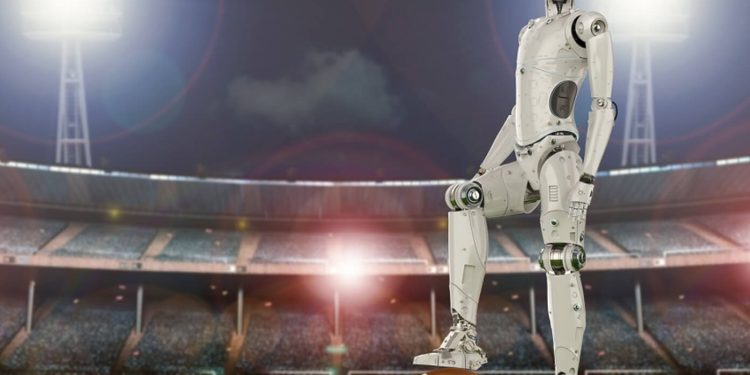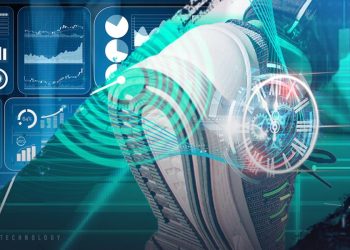Artificial intelligence has brought many changes to various industries because of its ability to analyze data more quickly and efficiently than humans.
It is also true for sports management- with AI assisting athletes in analyzing their performance through data analysis faster than any human ever could.
Artificial intelligence has been used in many ways by the sports industry, including predicting outcomes, analyzing player performance, and predicting injuries.
The use of AI in sports, and the benefits it brings, is rapidly growing. This article explores how AI can be used in sports to enhance players’ performance, provide coaches with robust insights into the game, and improve sports broadcasting.
AI Applications in the Sports Industry
Many AI technologies can learn, gather data, interpret it, and react without human intervention. AI systems can also be characterized as computer systems capable of performing tasks that would ordinarily necessitate human intellect.
In today’s sports, there are a plethora of technological advancements tailored to the needs of the individual. The following section goes over a few of them.
Coaching and Training
With technical advancements, mentoring and coaching in today’s sports have altered. Coaches and scientists use AI as an information source since it has many game performances, training, and data.
Artificial intelligence’s expertise is constantly updated with real-time data. Sports coaches and scientists expand on this information, resulting in even more significant performance optimization.
Analysis of Performance
Using broad measures such as runs scored, passes made, goals scored, and so on isn’t ideal for effectively analyzing collective and individual accomplishments.
Analysts and coaches must examine a plethora of data points regarding the individual players and group performances to assess competence in any sport. It allows them to see where the players succeed and fall short.
The criteria used to evaluate individual players’ contributions vary based on their position in a team.
While training for a tournament, AI can detect patterns in adversaries’ strategies, abilities, and vulnerabilities.
It allows coaches to create extensive game plans based on their appraisal of the opponent and increase their chances of winning.
Recruiting and Scouting
While individuals are far from being subject to evaluation using quantitative, objective measurements, their actions can be scrutinized quantitatively.
Investing in athletes is always a risky proposition since many fall short of expectations. Forecasting models focus on tailored AI applications explicitly used for scouting and recruiting.
Artificial intelligence estimates an athlete’s skills and competency based on various criteria such as strength, proportions, body weight, etc.
Before investing in a player or a team, AI can analyze historical information recorded in sports to estimate their potential value.
It could also assess player valuations to make the best offers when recruiting fresh talent.
Streaming and Broadcasting
AI can transform live coverage and alter how audiences experience athletics, in addition to revolutionizing sports for athletes and sports administrators.
The way broadcasters monetize games is also set to alter due to AI. AI algorithms can autonomously choose the best camera angle to present on the viewers’ displays considering the developments in the field.
The viewer’s geolocation and linguistic preference can give subtitles in many languages for live sporting events.
Artificial intelligence algorithms can also be used to find the best times to show commercials in athletic venues based on crowd interest levels, allowing broadcasters to make the most of ad sales potential.
Keeping the Player’s Fitness, Safety, and Health in Check
It is common knowledge that the arrival of AI is revolutionizing the healthcare business in various ways. AI’s incredible analytical and diagnostic skills may also be used in sports, where crucial human fitness and health are.
Sports organizations invest substantially in their players’ mental and physical well-being because the foundation of sports is maintaining optimum physical fitness.
To ensure the health and fitness of their players, teams are increasingly adopting technical solutions into player healthcare. Artificial intelligence has become the newest medical instrument in these teams’ toolboxes.
Players are put through physical tests regularly that use AI to monitor numerous health metrics and player motions to assess their fitness and even discern early signs of weariness or stress-related ailments.
It can assist athletic organizations’ medical personnel in maintaining their athletes’ fitness and protecting them from illnesses by taking prompt action.
Sports Journalism Reimagined
Finally, integrating sports and AI has the unintended consequence of spawning a new genre of sports media known as automated journalism.
Writers can utilize data and statistics to create storylines that use natural language utilizing tools like Wordsmith.
Journalists may use AI to broaden their scope and enhance the number of matches they can cover. Therefore, no more deciding which games are deserving of attention.
Challenges and Points to Consider
AI applications have several advantages, including faster analysis, precision, and automation, as we’ve seen. Despite its relevance, it faces significant problems, as stated below.
- Confidentiality and Security Breaches: Because artificial intelligence is utilized to assess athletes based on past data, data leakages to opponents are a potential.
- Concerns about Cyber Security: Computers may be vulnerable to unauthorized access or illegal use, compromising data integrity and confidentiality.
- Endurance: AI systems do not have a crisis or emergency management system; therefore, recovering from disruptions and challenges may be problematic.
- Depending on Third Parties: Using AI effectively necessitates current data, which someone must update manually.
Also read: How Rapidly Evolving AI Technology is benefitting the Humanity
Wrapping Up
When you think of Artificial Intelligence, you may think about how it’s transforming industries such as manufacturing and transportation. However, AI is also making waves in sports.
AI in the sports industry has become commonplace with every passing day. It not only enhances the experience of fans but also helps athletes to improve their skills.
AI plays a vital role in analyzing performance, understanding athletes’ movements, and identifying injury risks.
It is unquestionably the game-changer for sports technology. Moreover, we’re not quite at the end of the road yet; we’re possibly just getting started, and that’s a thrilling prospect!







